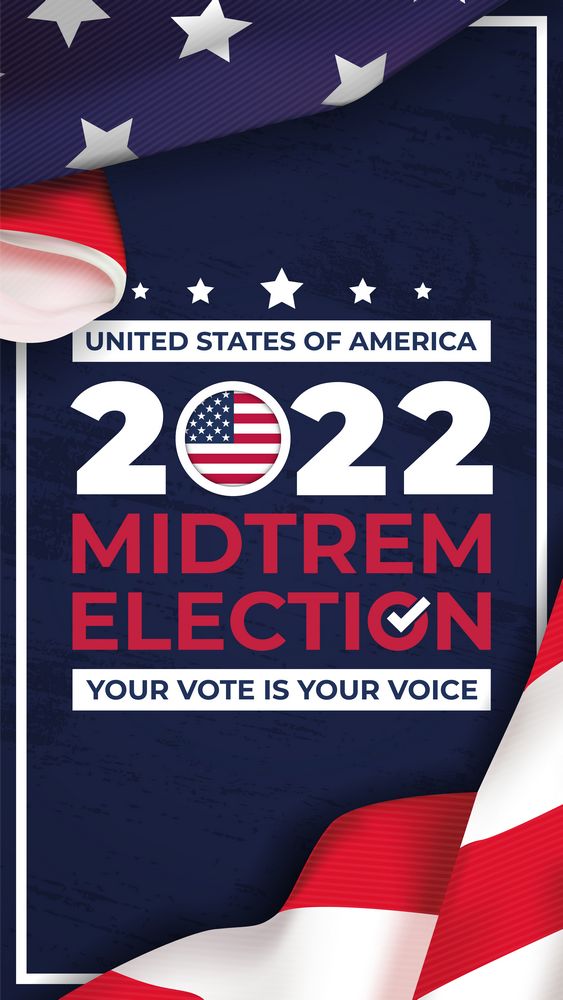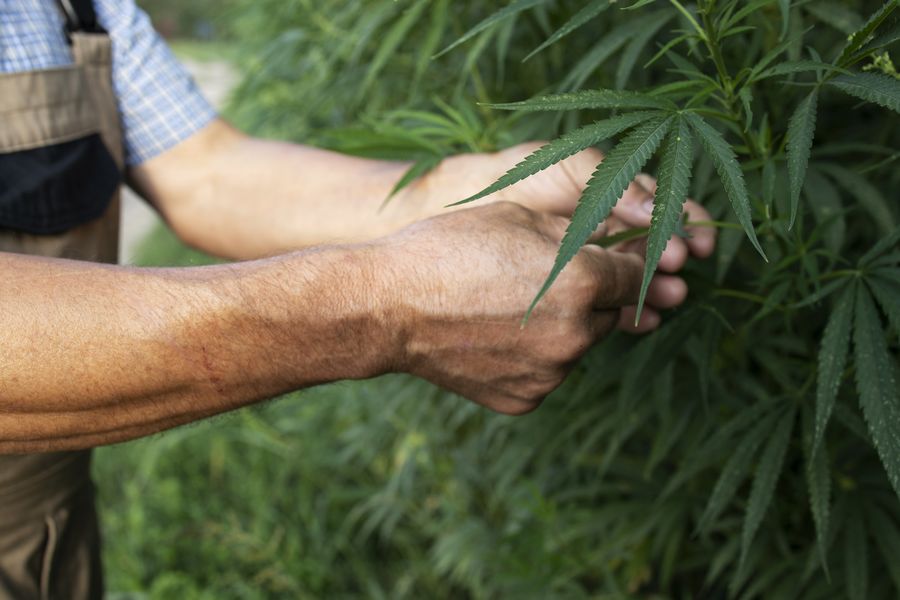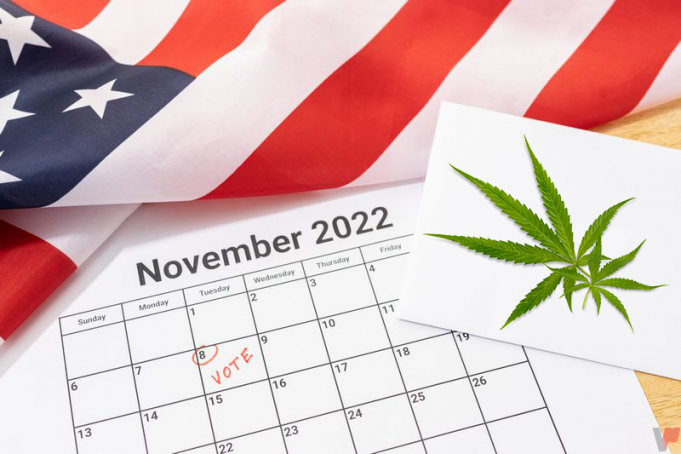Former Democratic presidential candidate and U.S. Sen. Cory Booker of New Jersey said that marijuana reform at the national level is to be expected in the lame-duck session of Congress after the midterm election on Tuesday, November 8, 2022. With the prospects of the election moving toward a divided government, there is much to do before the start of a new session of Congress.
Booker, in an interview with NJ.com, says that marijuana reform is a top priority, pointing to the pending status of a package of cannabis-related proposals that are still in “active negotiations.”
“It’s very likely that during the lame duck—before the new Congress—we’re going to see a really good bipartisan attempt to move it,” Booker said, via October 17’s interview, alluding to a recent conversation that he had with Senate Majority Leader Charles Schumer, D-New York. “Maybe it’s not the [legalization] bill I wrote with Schumer and [Senate Finance Committee Chairman Ron Wyden (D-OR)], but an effort to tie in restorative justice and some fair banking provisions.” The fair banking provisions that Booker mentions derive from his efforts with industry partners to ease banking regulations to allow marijuana firms across the country the ability to access mainstream financial services without civil or criminal penalties from the government.
“I think it has a good chance because our Republican allies also understand that if one of the houses of Congress shifts to Republican, it will be very hard to do anything on marijuana,” he said, per the coverage on the interview by Marijuana Moment. It actually might be the only chance for any meaningful action on marijuana legislation at the federal level before the new year.
Understanding U.S. midterm politics

For those of our readers who are outside of the United States, which is a lot, the structure of our country’s political system is considerably complex and hard to understand for some. Instead of a constant reelection push after a set number of years for all members of the two bodies of Congress, the Senate is structured as a staggered term of six years for each member, meaning that only a third of the current members are up for reelection every two years. In the House of Representatives, all members must run for reelection every two years. Neither chamber has term limits, meaning that some members have been in their positions for decades and have full control over their states and districts.
I mention this because the House of Representatives is currently under the control of the Democrats and House Speaker Nancy Pelosi, D-California. However, projections show that the House is likely to be won by a Republican majority, further creating an environment on Capitol Hill of divided government. The Senate is expected to remain in the hands of the Democrats. President Joe Biden was elected in 2020, beating incumbent Donald Trump.
The term of a U.S. president is four years, hence the “midterm” terminology related to the election that occurs during a White House occupant’s tenure as head of government and state.
A divided government occurs when one or both chambers of Congress are split between the two major parties and the White House is still controlled by a member of the two major parties.
A divided government can also occur when one chamber is under the control of one party and the other is under the control of the other. As Sen. Booker explained, the weeks after the midterm election is considered the “lame-duck” session, or the final weeks for those in power to accomplish agendas and adopt a policy.
Bipartisanship and lame-ducks

Marijuana reform is popular among unaffiliated voters and those who vote with the majority parties, Democrats and Republicans.
Vaping Post reported earlier this month on a public opinion poll conducted by Morning Consult and POLITICO that found 3 in 5 voters support legal marijuana nationwide. That’s simply 27 percent said marijuana should remain illegal on the federal level. These are also similar numbers to another survey conducted in December 2020 by both Morning Consult and POLITICO outlets.
71 percent of Democratic voters, 61 percent of independents, and 47 percent of Republicans support federal legalization efforts. The lame-duck sessions in Congress are known to either reflect the majority viewpoint among the electorate or the minority. It ultimately depends on the special interest groups at play and the overall motivations of those in positions of control and power.
Booker, however, is speaking of an effort to move reform banking regulations and criminal justice policy forward to try and alleviate the burden of the state that hangs over the heads of marijuana and cannabis-based businesses that operate in states where the practice of marijuana sales and cultivation is regulated and legal.
Not to mention, it is a tenant of the Democratic party’s platform to counter the significant impacts of the war on drugs and the many decades the United States led a systematically-racist fight against petty marijuana possession. This is demonstrated by the recent move by President Biden who announced to much acclaim that his administration will commute the sentences of thousands of federal marijuana offenders in an effort to ease the tensions among the police and communities of color and to walk down the path of total marijuana liberalization and decriminalization policy.
The potential of a Republican-controlled U.S. House of Representatives
One final thing to consider is the social and ideological makeup of the current Republican party in the United States. FiveThirtyEight, a data-based news outlet owned by ABC News, projects that the Republicans will have a 3 in 4 chance of flipping the House right.
The potential of a Republican is notable because there is a very split opinion on whether marijuana at the national level should be legalized. A plurality of Republican voters support the efforts to legalize marijuana, but the leaders that they elect oftentimes reflect only a portion of the beliefs of their constituency. Since the 2020 election, the GOP (another name for the Republicans in the U.S.) shifted further to right based on populist and xenophobic alignment with the controversial former President Donald Trump.
Trump, as Vaping Post reported several times over, is a divisive figure when it comes to vaping and the trend of tobacco harm reduction in the United States. He is the president that signed into law the change in the minimum legal sales age for tobacco products from 18 years to 21 years of age. President Trump is also responsible and, therefore, accountable for appointing a cabal of regulatory leaders that advanced the current regime on vaping to its most invasive form. Biden is no saint when it comes to tobacco harm reduction either. But, it was Trump officials that handed off the regulatory regime they grew to Democrats with similar goals to eliminate nicotine use in some form or another.
Republicans in power, currently, aren’t keen on the legalization of marijuana at the national level. Paired with their populism and their blind followership of a figure like Donald Trump, this new bread of Republicans is opposed to marijuana because it counters with the concept of a “law and order” platform that holds little or no account for the actual harm done on broad policing of drug users. There are Republicans in both chambers that will be in office in 2023 that support legalization, but their voices will be competing with more boisterous and erratic Republicans who only play the part of the politician to stew up their constituencies with unfounded conspiracy theories about election stealing in 2020.
I find it crucial that marijuana, based on the broad context that is described here, be a principal issue for those who do want to reform national marijuana laws for the better. Marijuana for the vaping industry is the lifeline needed for its long-term survival.








